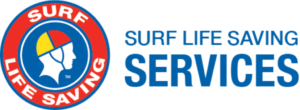In times of crisis, our instincts kick in, driving us to help those in need. However, well-intentioned actions based on unproven folk practices can often do more harm than good in first aid situations. While traditional remedies and practices might hold cultural significance, relying on them during emergencies can have detrimental consequences.

Why unproven folk medicine can be dangerous ?
- Delaying proper medical care: Precious time can be wasted trying unverified methods, potentially worsening the victim’s condition and decreasing their chances of recovery. For example: folk medicine or needle pricking for stroke victims, turn and shake drowned victims upside down. The practices themselves may not cause further harms, however, delay the correct first aid and professional help that can improve the victims’ survival chances.
- Exacerbating injuries: Certain folk practices can aggravate existing injuries or introduce new complications. For instance, applying substances like butter or toothpaste to burns can trap heat and worsen tissue damage.
- Misinformation and myths: Many traditional beliefs surrounding first aid lack scientific basis and can be misleading, leading to ineffective or even harmful interventions. Those beliefs are also often perpetuated by movies and social media.
- Risk to both victim and rescuer: Some folk practices can endanger both the person administering aid and the recipient. For example, it’s very common for children to drowning in groups for unsafe rescue attempts.
Combating the Spread of Misinformation
- Promote evidence-based education: Organisations like Survival Skills Vietnam play an important role in educating the public about proven first aid practice. We transparently declare the sources that we used and the experience and qualification of experts who contribute to designing our programs.
- Disseminate correct information via digital platforms: Survival Skills Vietnam provide a comprehensive ecosystem to provide reliable educational resources such as: website, mobile apps, e-learning platform and social media to combat against misinformation and fake news that may harm readers and the people they try to help.
- Collaboration with media channels: Survival Skills Vietnam work hand-in-hand with media channels to share correct first aid practice information via various forms including news, TV shows, podcasts, radio etc. We offer training support and consultation to journalists of all popular media channels in Vietnam.
It’s important to remember that while traditional remedies may have a place in some aspects of healthcare, first aid requires a swift, evidence-based approach. Relying on unproven folk practices can have dire consequences. By promoting awareness, providing accessible training, and utilizing reliable sources of information, we can ensure that help offered in emergencies is truly helpful and safe for everyone involved.






